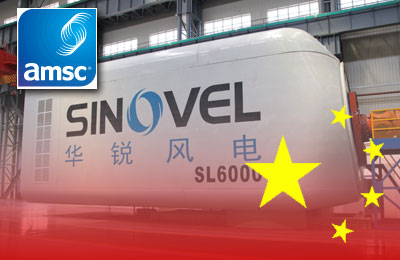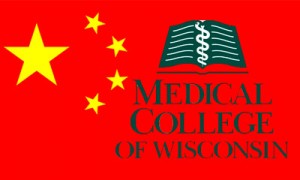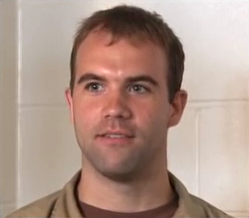(Boston.com) . . . His case marked what would be the opening round of a two-year fight by the Devens-based technology firm known as AMSC to defend its intellectual property rights — even as it lost millions of dollars and laid off hundreds of workers as the result of the software theft.
It would also open a window on the sometimes tawdry world of economic espionage between companies battling for preeminence in emerging energy markets.
The giveaway: a bit of pirated software found in a Sinovel-made turbine in Charlestown. Authorities believe the Chinese manufacturer stole the software from the Devens company, installed it in Sinovel turbines, and then sold the illegally equipped turbines in the United States at a profit.
The indictment underscores one of the most contentious issues in Sino-American relations, the protection of the intellectual property of companies doing business in China.
How this criminal case — as well as four suits that AMSC filed against Sinovel in Chinese courts — plays out could influence relations between the two countries for years to come.
“It’s important because a lot of people lost their jobs all over the country,” said Timothy O’Shea, an assistant US attorney in the Western District of Wisconsin, where the indictment was filed. “It’s important to protect intellectual property so that people have an incentive to innovate and invest.”
Sinovel was founded less than a decade ago, initially financed by a Chinese government that has aggressively pursued alternative energy to satisfy the nation’s hunger for power and establish China’s leadership in an emerging technology. As with many businesses in strategic industries targeted by Chinese planners, Sinovel sought the know-how of a foreign partner.
Sinovel built the wind turbines, and AMSC supplied the software to control their operations. By 2009, Sinovel had become one of world’s leading wind turbine makers, and the partnership with AMSC was so successful that President Obama touted it as a model for other US companies to follow.
AMSC’s revenues soared, and by 2011 Sinovel accounted for nearly 80 percent of its sales. AMSC opened offices around the world, adding jobs and expanding its global workforce. The company’s stock price climbed, too, during this period, more than doubling to about $25 a share.
It appeared to be the perfect partnership, a true collaboration between the Massachusetts company and the Chinese manufacturer, and a boon to alternative energy. But Sinovel, court records show, would soon decide that it was time to cut AMSC out of the deal.
Sometime around February 2011, it began wooing Karabasevic, a Serbian national working in AMSC’s Austrian office, ultimately promising him a six-year, $1.7 million contract with Sinovel and “all the human contact” he could want, “in particular, female co-workers.”
The engineer used his laptop and the Internet to access an AMSC computer in Middleton and download proprietary software code, court documents and other records show. Karabasevic then e-mailed that code and subsequent updates to Sinovel employees. . . . (read the rest)












